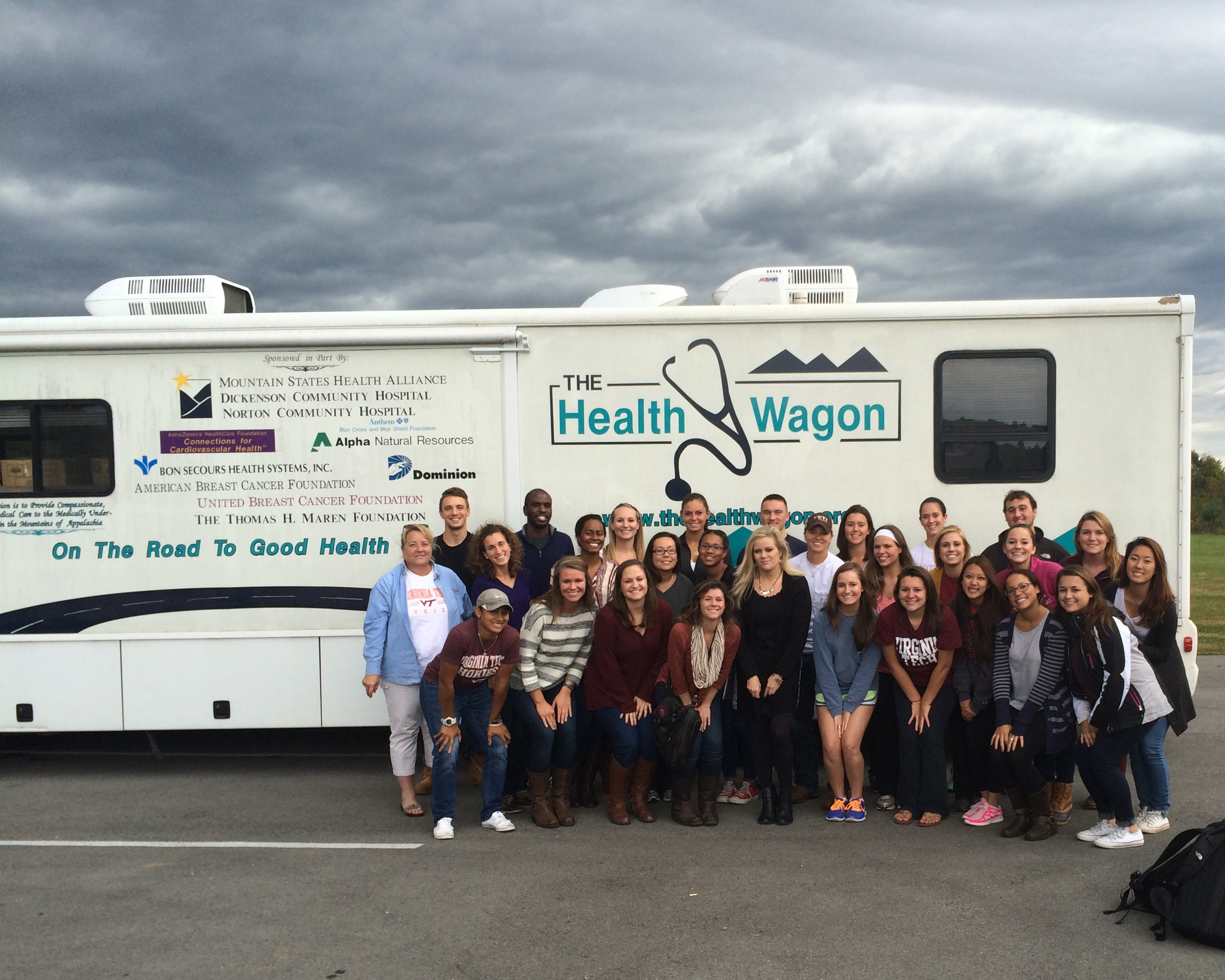Undergraduates in public relations campaigns class mobilize to spotlight health outreach program

When The Health Wagon, a spiffy 2014-model motorhome, rolls onto the Drillfield later today, it won't be here to deliver flu shots or accept blood donations, but rather to tell a story.
Thanks to the efforts of a Virginia Tech communication class, the vehicle will be on campus to draw attention to one of the state’s critical health-care needs.
The Health Wagon takes medical personnel and services to needy people in six far southwestern Virginia counties who otherwise would have none. Visiting Assistant Professor Kelly McBride’s public relations campaigns class reached out to the program’s staff this semester to lend communication expertise.
Dividing into teams, the 30-member class arranged for The Health Wagon to travel to Blacksburg from its home bases in Wise and Clintwood, Virginia. The “Follow the Wagon” team, managed by senior public relations major Courtney Edwards of Richmond, Virginia, created a media packet and a public-service announcement and arranged a visit by the program’s corporate donors to see the new vehicle on campus.
Another student team focused on auto racing, a popular pastime in the region served, and succeeded in having The Health Wagon's logo placed on a NASCAR vehicle that raced in late October. Another group worked on diabetes awareness with medical groups on and off campus to recruit interns and volunteers.
A third team’s contribution was technical support to the organization's social media and Web sites, fixing broken links, Tweeting, and posting on Facebook.
“Working on this event taught me that effective communication is key to success,” Edwards said. “You need to communicate with your client to plan details and key messages. You also need to communicate with the media through press kits and releases, follow-up phone calls, and emails. I know that when this event is successfully launched for The Health Wagon, it will all be worth it."
Founded in 1980 by the Medical Missionaries of Mary through the Richmond Catholic Diocese, The Health Wagon began its journey in a Volkswagen Beetle. Until purchase of the latest vehicle, the organization’s mobile health unit was a 2002 motorhome that had logged many thousands of miles along steep, winding secondary roads.
In 2013, The Health Wagon helped more than 11,000 patients with health care valued at more than $1 million. Further, with help from pharmaceutical companies, the Virginia Health Care Foundation, and the Mountain Empire Older Citizens agency, it provided $1.2 million in pharmacy assistance.
Primary funding for The Health Wagon has historically come from grants, but the program recently lost a sizable federal subsidy. Private donors stepped forward, and one of the student teams has contacted the region’s major hospital corporations about doing the same.
Elizabeth Spiller, dean of the College of Liberal Arts and Human Sciences, said the class's involvement is a wonderful example of how students across the liberal arts are well positioned to integrate what they learn in the classroom into practical and humanly transformative outcomes.
“The Health Wagon offers life-changing access to better medicine, but medicine alone is not enough; these communication students are contributing their expertise to make sure that those who might benefit know about the program and what it offers," said Spiller.
McBride noted with pride that her students have planned events for next semester, long after the class is over, including a dinner auction to be held at the speedway in Pulaski County.
“They are committed to attending and working,” she said.
The new Health Wagon will be on the Drillfield today starting at 10 a.m. Its staff will be on hand to lead tours of the unit for university students, faculty and staff, and campus visitors.




